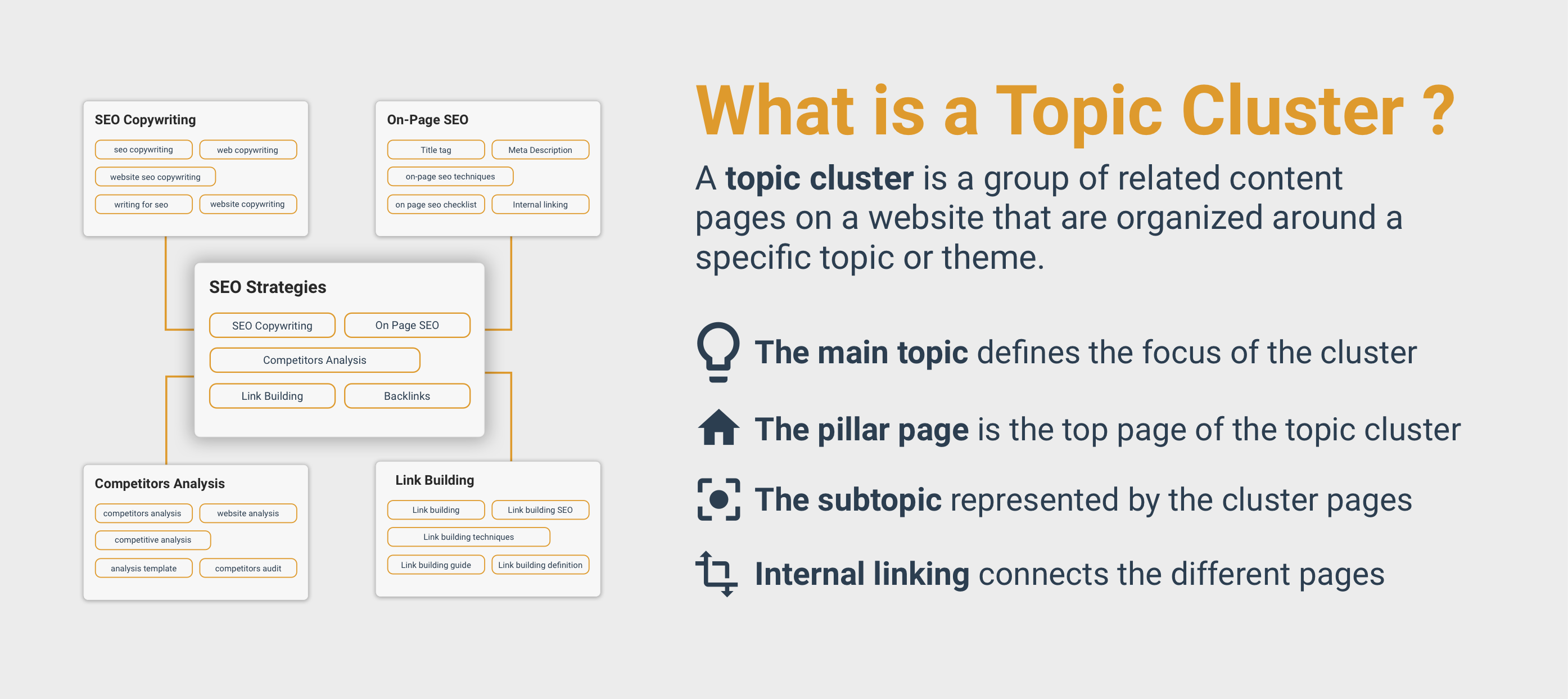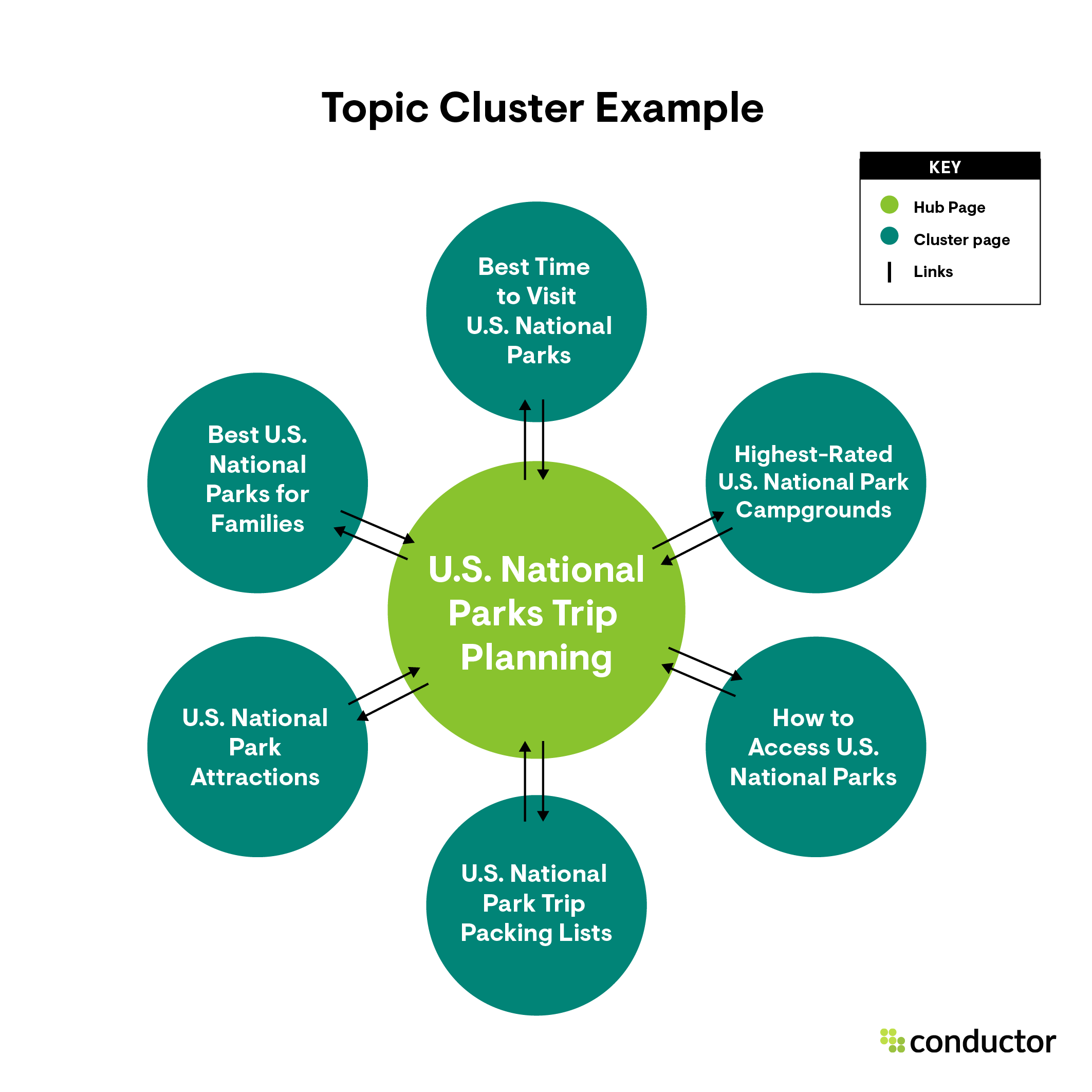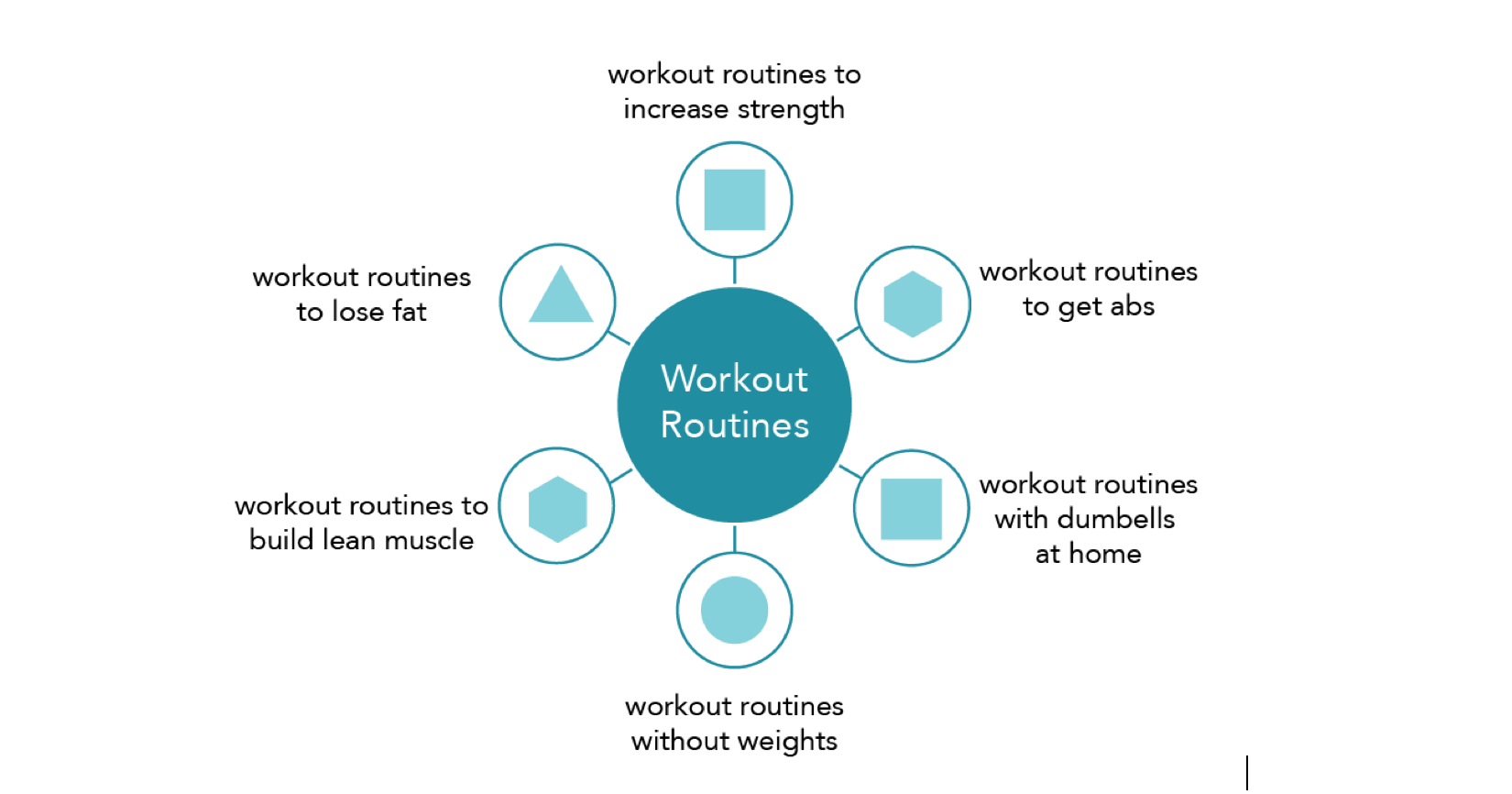Using Topic Clusters to Enhance SEO and Site Architecture
Topic clusters are a strategic approach to organizing content around a central theme or main subject, known as a "pillar" topic. This method enhances SEO by improving site architecture, establishing topical authority, and boosting rankings. Here's how topic clusters work and their benefits:
What Are Topic Clusters?
- Definition: A topic cluster consists of a pillar page that provides a broad overview of a topic and multiple cluster pages that delve into specific subtopics related to the pillar topic.
- Structure: All pages within a cluster are interconnected with internal links, which helps distribute link equity and aids search engines in understanding the content's semantic relationships.
Benefits of Topic Clusters
-
Improved SEO Performance:
- Establish Topical Authority: By covering a topic comprehensively, you increase your chances of ranking for multiple related keywords.
- Internal Linking Structure: Enhances user experience and helps search engines understand the site's content hierarchy.
-
Avoid Keyword Cannibalization:
- Prevents multiple pages from competing for the same keyword, ensuring a stronger ranking potential.
-
Enhanced User Experience:
- Users can easily find related content, improving engagement and conversion rates.
-
Better Site Architecture:
- Organizes content in a logical and accessible manner, making it easier for both users and search engines to navigate.
How to Create Effective Topic Clusters
-
Select a Core Topic:
- Align with your business goals and target audience interests.
-
Conduct Keyword Research:
- Identify relevant subtopics and long-tail keywords to target with cluster pages.
-
Create a Pillar Page:
- Provides a broad overview of the topic, linking to cluster pages.
-
Develop Cluster Pages:
- Each page should focus on a specific subtopic, providing detailed information.
-
Implement Internal Linking:
- Connect all cluster pages to the pillar page and to each other to enhance navigation and SEO.
Example of a Topic Cluster
- Pillar Topic: Social Media Marketing
- Pillar Page: "What Is Social Media Marketing?"
- Cluster Pages:
- "Social Media Analytics"
- "Content Planning for Social Media"
- "Social Listening Strategies"
Each cluster page links back to the pillar page and to other relevant cluster pages, creating a cohesive content network.
Conclusion
Topic clusters are a powerful tool for enhancing SEO and site architecture by organizing content around central themes, improving internal linking, and establishing topical authority. By implementing topic clusters effectively, websites can improve their visibility, user experience, and overall SEO performance.





